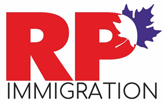Charitable or Religious Work
Canada offers a program for foreign nationals to participate in charitable or religious work, allowing them to work temporarily in Canada for a charitable or religious organization. This program is known as the Charitable or Religious Work program.
Under this program, foreign nationals may be eligible for a work permit to participate in charitable or religious work in Canada for a period of up to 24 months. The work permit is usually tied to a specific employer or organization and is not transferable to another employer.
It’s important to carefully review the eligibility requirements and application process for the Charitable or Religious Work program, as they may have specific requirements and procedures that must be followed. It may be helpful to seek the assistance of an immigration lawyer or consultant to ensure that the application is properly prepared and submitted.
The first step is to obtain a job offer from a Canadian charitable or religious organization that is willing to hire you for the work you will be doing. The job offer should include details such as the nature of the work, the duration of the work, and the salary or compensation offered.
The Canadian organization must provide a letter of support that confirms the nature of the work, the duration of the work, and that the foreign national will not displace Canadian workers. This letter should also confirm that the organization has the resources to support foreign nationals during their stay in Canada.
The completed application, along with all required supporting documents, should be submitted to the appropriate Canadian visa office or immigration processing center. It is important to ensure that all information provided is accurate and complete.
If the application is approved, the applicant will receive a work permit allowing them to work for the designated charitable or religious organization in Canada for the specified period of time.
ELIGIBILITY CRITERIA
To be eligible for the Charitable or Religious Work program, the following requirements must be met:
- The foreign national must have a job offer from a Canadian charitable or religious organization to participate in charitable or religious work in Canada.
- The Canadian organization must provide a letter of support, stating the nature of the work, the duration of the work, and confirming that the foreign national will not displace Canadian workers.
- The foreign national must meet the admissibility requirements for entry into Canada, including criminal and medical admissibility.
- Foreign nationals must have sufficient funds to support themselves during their stay in Canada unless their Canadian employer is providing financial support.
- The foreign national must pay the application fee for the work permit.
DOCUMENT REQUIREMENT
- Valid passport
- Job offer
- letter of support
- Language proficiency test results
- Police clearance certificate
- Education credentials assessment
- Work experience











